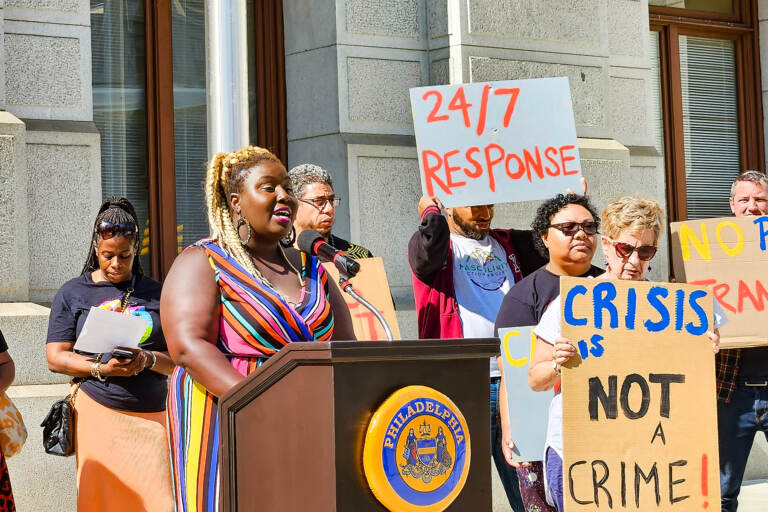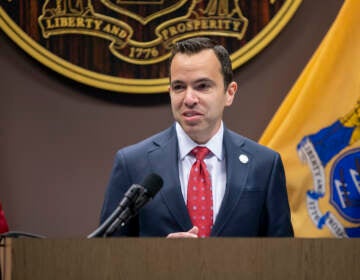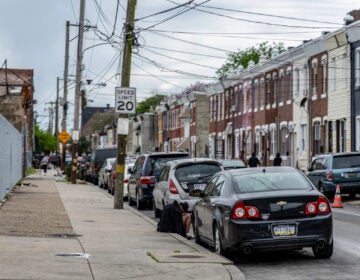Philadelphia City Council paves way for $3 million funding bump for mobile crisis response services
Mobile crisis program supporters say additional funding will help to better staff professional teams and improve response times.

Members of the Philadelphia Treatment Not Trauma Coalition join local legislators at City Hall Thurs., June 1, to call on the city to allocate $3 million of additional funding in the fiscal year 2024 budget for the city’s community mobile crisis response program. (Nicole Leonard/WHYY)
Philadelphia City Council approved a $6.2 billion dollar budget Thursday before leaving for summer recess.
The fiscal year 2024 budget, which now awaits Mayor Jim Kenney’s final signature, includes additional money for mental and behavioral health crisis response services.
“Over 200 Philadelphians each day seek mental health support,” said Councilmember Kendra Brooks, “and this funding will help ensure trained mental health providers will be able to respond to every call.”
Philadelphia’s community mobile crisis response program is a network of four nonprofit organizations that each run multiple units of non-police mental and behavioral health experts.
The teams respond to people who call the national 9-8-8 Suicide and Crisis Lifeline or the city’s local crisis lines.
However, some units have struggled to staff 24/7 coverage, said Commissioner Dr. Jill Bowen of the city Department of Behavioral Health and Intellectual disAbility Services during a budget hearing in April.
Bowen said the response times to reach people were also longer than the desired 30 minutes, averaging more than one hour per call.
“That is presenting a little bit of a challenge for us, especially during the higher volume times,” Bowen said.
City council members and crisis providers say the additional money allocated in the new budget will address staffing issues and improve response times by establishing bridge teams to help cover high-volume periods.
The $3 million boost is in addition to the $6 million dollars originally budgeted for the mobile program.
Community advocates, criminal justice experts, and behavioral health professionals with the Philadelphia Treatment Not Trauma Coalition have called on the city to better invest in non-police crisis response services.
At City Hall earlier this month, advocates said it was crucial that the city maintain a fully operational system to help people in crisis, especially those who’ve suffered trauma and stigma in previous interactions with law enforcement and other agencies.
“There needs to be more understanding,” said Rasheeda Bagwell, an activist and a person living with post-traumatic stress and anxiety. “[There] needs to be more preventative measures taken to help the people that we know have these issues.”
WHYY is your source for fact-based, in-depth journalism and information. As a nonprofit organization, we rely on financial support from readers like you. Please give today.





